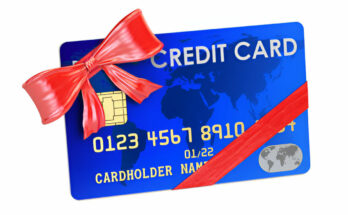Best Travel Credit Cards for Beginners
Have you heard that traveling is part of education? If you have, it might be safe to add that a good travel credit card is an education enabler.
Having a good Travel credit card offers you a great way to earn rewards while spending on your travel. However, making the right choice of card can be overwhelming, especially for a beginner. With so many options available, it can be difficult to determine which card can offer you the most required benefits and rewards.
This article is written to help beginners navigate the world of travel credit cards and find the best one to suit their needs. If you are one such person, stick around and read this article to the end so you can reap all the benefits and get the recommendations written here.
Even though you are a frequent traveler, you can still pick a thing or two from this article to make your travel credit card journey more ease while you earn more rewards and save money on your trips. So, let’s dive into the best travel credit cards for beginners and find the one that’s right for you.
Understanding Credit Cards and Travel Rewards
To make the best out of your credit card or travel reward card, you must first understand the various types of cards available for travelers and how to benefit from them.
Types of Travel Credit Cards
When it comes to travel credit cards, there are two main types and they are;
- Co-branded and
- General travel cards.
Co-branded cards are cards associated with a specific airline or hotel chain, while general travel cards offer more flexibility in terms of redemption options.
As a beginner, you may find general travel cards to be a better option for you since they offer you more opportunities to earn points or miles that can be redeemed for travel-related expenses such as flights, hotel accommodations, and car rental.
How Rewards Programs Work
Travel rewards programs work by offering points or miles for every dollar spent on eligible purchases. These points or miles can then be redeemed for travel-related expenses.
Some cards offer bonus points or miles for specific categories such as dining or gas purchases. It’s important to read the terms and conditions of each card to fully understand how the rewards program works and what expenses are eligible for rewards. You can also ask any available sales rep or the person offering you the card for tips on how to qualify for more rewards.
Read also: Best Money-Saving Apps
Credit Score Basics
To be eligible for a travel credit card most times requires a good credit score. A credit score is a numerical representation of a person’s creditworthiness based on factors such as payment history, credit utilization, and length of credit history.
As a beginner, you must aim to maintain a good credit score by paying bills on time, keeping credit utilization low, and avoiding opening too many new credit accounts at once.
Understanding the different types of travel credit cards, how rewards programs work, and credit score basics can help you choose the best travel credit card for your needs and maximize their rewards.
Top Travel Credit Cards for Beginners
When it comes to travel credit cards, beginners often find themselves overwhelmed by the multiple options available. To make things easier, here are some of the top travel credit cards for beginners that offer a good number of benefits.
-
Entry-Level Cards
For those who are new to the world of travel credit cards, entry-level cards are a great place to start. These cards usually come with lower credit limits and fewer bonuses, but they are easier to qualify for and have lower fees.
One such card is the Chase Freedom Unlimited, which offers 1.5% cash back on all purchases and has no annual fee. Another option is the Capital One Quicksilver Cash Rewards Credit Card, which offers 1.5% cash back on all purchases and has no foreign transaction fees.
-
No Annual Fee Cards
For beginners who want to avoid paying an annual fee, several travel credit cards offer great rewards without any extra costs. These cards are ideal for those who are just starting and want to test the waters before committing to a more expensive card.
One such card is the Discover it Miles, which offers 1.5x miles on all purchases and has no annual fee. Another option is the Bank of America Travel Rewards Credit Card, which offers 1.5x points on all purchases and has no annual fee.
-
Cards with Travel Insurance
Insurance is an important part of your traveling journey and for those who want extra protection while traveling, several travel credit cards offer travel insurance as a bonus. These cards are ideal for beginners who want peace of mind while exploring new places.
One of the cards you can try out if insurance is important to you is the Chase Sapphire Preferred Card, which offers trip cancellation/interruption insurance, baggage delay insurance, and travel accident insurance. Another option is the Citi Premier Card, which offers trip cancellation/interruption insurance, trip delay protection, and worldwide travel accident insurance.
In total, these top travel credit cards for beginners offer a range of benefits and bonuses that can help make traveling more enjoyable and affordable.
Maximizing Card Benefits
When it comes to maximizing the benefits of a travel credit card, there are a few strategies that beginners should keep in mind and some of them are listed below;
-
Sign-Up Bonuses
One of the biggest bonuses of travel credit cards is the sign-up bonuses. These bonuses can range from a few thousand to tens of thousands of points or miles and can be earned after meeting a minimum spending requirement within a certain timeframe.
Beginners should look for cards with sign-up bonuses that are achievable for their spending habits. It’s important to remember that these bonuses usually come with a spending requirement, so it’s important to only apply for cards with bonuses that can be realistically met without going out of your travel budget.
-
Rewards Redemption Strategies
Once points or miles have been earned, it’s important to have a strategy for redeeming them. Beginners should research the best redemption options for their particular card, as well as any transfer partners that may offer more value.
It’s also important to keep an eye on any expiration dates for rewards and to use them before they expire. Some cards may also offer additional redemption options, such as statement credits or travel purchases, so it’s important to explore all options before redeeming.
-
Additional Bonuses and Offers
In addition to sign-up bonuses and rewards redemption, many travel credit cards also offer additional bonuses and offers. These can include things like airport lounge access, hotel upgrades, and travel insurance.
As a beginner, you may ask questions regarding these bonuses and offers at the point of collecting the card and take advantage of them when possible. It’s important to read the fine print attached and understand any restrictions or limitations before taking advantage of these benefits.
By keeping these strategies in mind, you can maximize the benefits of your travel credit cards and make the most of your travel experiences.
Common Pitfalls to Avoid
When it comes to using travel credit cards, there are a few common mistakes that beginners should be aware of. By avoiding these mistakes, cardholders can maximize their rewards and avoid unnecessary fees.
-
Interest Rates and Fees
One of the biggest mistakes that beginners make is failing to pay attention to interest rates and fees. While travel credit cards can offer great rewards, they often come with high interest rates and annual fees. Cardholders who carry a balance or fail to pay their bill on time can quickly rack up interest charges and penalties, which can invalidate any rewards earned.
To avoid this pitfall, you should always pay your bill on time and in full each month. You should also be aware of any annual fees and factor them into your spending decisions. If a card has a high annual fee, it may not be worth it for someone who doesn’t travel frequently.
-
Reward Devaluation
Another common mistake is failing to understand how reward points work and how they can be devalued over time. Some travel credit cards offer points that can be redeemed for flights, hotels, and other travel expenses as already stated above.
However, the value of these points can fluctuate over time, and cardholders may find that their points are worth less than they thought.
To avoid this mistake, beginners are advised to do their research and understand how reward points work before collecting a card. They should also be aware of any changes to the rewards program and how they may affect the value of their points.
-
Overspending for Points
Finally, you may be tempted to overspend to earn more reward points. While this can be a good strategy in some cases, it can also lead to debt and financial problems.
Cardholders who spend more than they can afford to earn rewards may find themselves carrying a balance and paying high-interest charges.
To avoid this grave mistake, beginners are advised to set a budget and stick to it. You should also be aware of your spending habits and avoid overspending to earn rewards. By using your travel credit card responsibly, beginners can enjoy the benefits of rewards without falling into debt.
Comparing Card Offers
When it comes to choosing a travel credit card, it’s important to compare the offers available in the market. Here are some key factors to consider:
- Interest Rates and APR
The interest rate and APR (Annual Percentage Rate) are important factors to consider when choosing a credit card. Some cards offer a low introductory APR for a limited time, which can be a great way to save money on interest charges. However, it’s important to read the fine print and understand the APR after the introductory period ends.
- Rewards Rate and Categories
One of the biggest benefits of travel credit cards is the rewards they offer. When comparing card offers, it’s important to consider the rewards rate and categories. Some cards offer a higher rewards rate for specific categories, such as dining or travel, while others offer a flat rate for all purchases. It’s important to choose a card that aligns with your spending habits and offers rewards that you will use.
- Foreign Transaction Fees
If you plan on using your travel credit card abroad, it’s important to consider foreign transaction fees. Some cards charge a fee for each transaction made outside of the country, which can add up quickly. Look for a card that offers no foreign transaction fees to save money on your travels.
By comparing these key factors, you can choose a travel credit card that best fits your needs and helps you save money on your travels.



